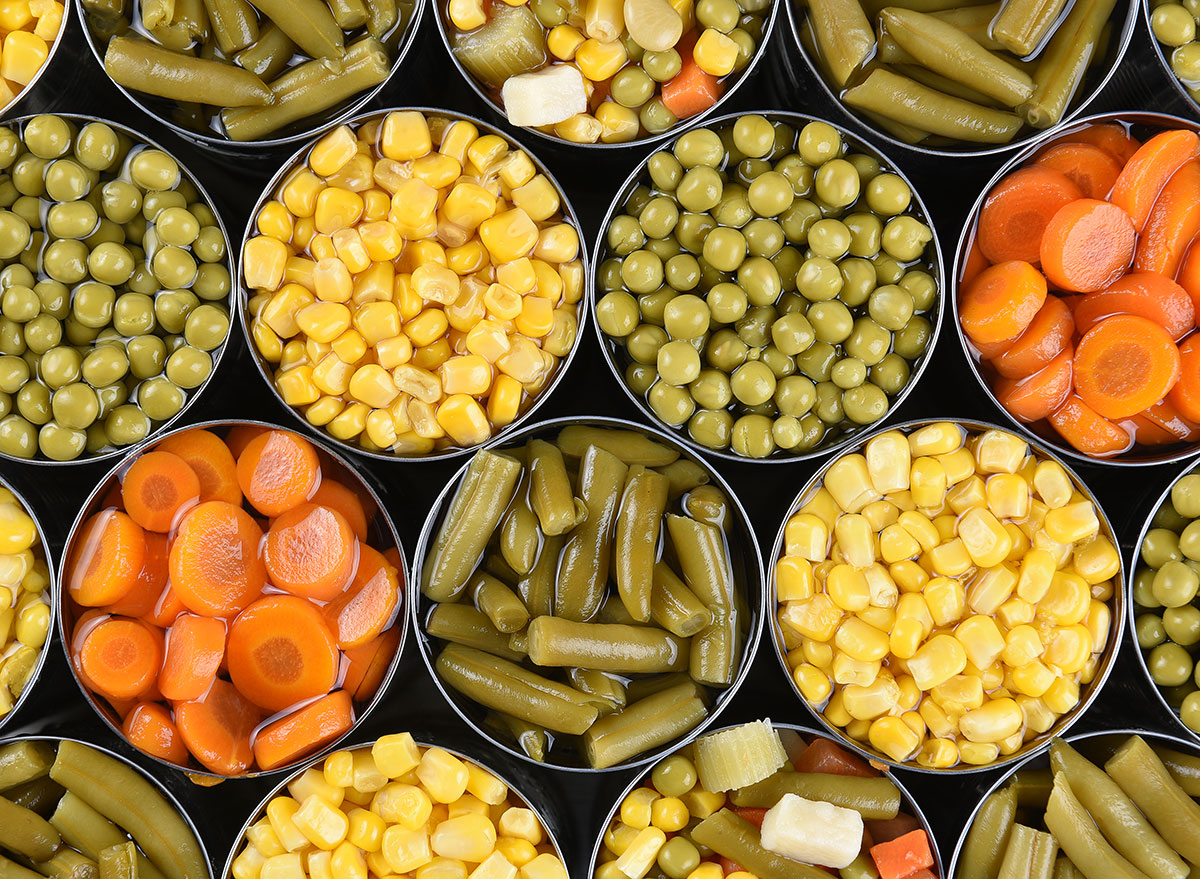Find out “8 Danger Sides of Canned Foods” Did you know canned foods have danger Sides? Canned foods have been around for decades, providing a convenient and accessible option for meals. However, there are several downsides to consuming canned foods that often go unnoticed. In this article, Coza24 will shed light on the dangers associated with canned foods and how they can negatively impact your health.

Table of Contents
- 1 The Hidden Danger: BPA
- 2 Nutrient Loss and High Sodium Content
- 3 Increased Risk of Foodborne Illness
- 4 Potential for Chemical Contamination
- 5 Negative Impact on the Environment
- 6 Added Sugar and Unhealthy Ingredients
- 7 Lack of Freshness and Flavor
- 8 Environmental Concerns
- 9 A Word From Nutritionist
- 10 Conclusion
- 11 FAQs
The Hidden Danger: BPA
One of the major concerns with canned foods is the presence of Bisphenol A (BPA). BPA is a chemical compound used in the lining of many food cans to prevent corrosion. However, studies have shown that BPA can seep into food and contaminate it. It is a known endocrine disruptor, which means it can interfere with the normal hormonal balance in the body. Long-term exposure to BPA has been linked to various health issues, including reproductive problems, obesity, and certain types of cancer.
Nutrient Loss and High Sodium Content
Another drawback of canned foods is the potential loss of nutrients during the canning process. Heat treatment and prolonged storage can lead to a significant reduction in the nutritional value of the food. Vitamins, such as vitamin C and B vitamins, are particularly vulnerable to degradation. Additionally, canned foods often contain high levels of sodium to enhance flavor and act as a preservative. Excessive sodium intake can contribute to high blood pressure and increase the risk of heart disease.
Increased Risk of Foodborne Illness
Canned foods are not immune to the risk of foodborne illnesses. Improper canning techniques or contamination during the manufacturing process can lead to the growth of harmful bacteria, such as Clostridium botulinum. This bacterium produces toxins that can cause botulism, a severe and potentially life-threatening illness. While the incidence of botulism from canned foods is rare, it’s essential to handle and store canned goods properly to minimize the risk.
Potential for Chemical Contamination
Apart from BPA, there is a potential for other chemical contaminants in canned foods. Prolonged storage or improper handling can result in the leaching of metals, such as lead and cadmium, from the can’s inner lining. These heavy metals can accumulate in the body over time and have been associated with neurological and kidney problems. It’s crucial to be mindful of the quality and safety of canned foods, especially when feeding infants and young children who are more susceptible to the harmful effects of these contaminants.
Negative Impact on the Environment
The widespread consumption of canned foods also has environmental implications. The production, packaging, and transportation of canned goods contribute to carbon emissions and waste generation. The aluminum and steel used in cans require substantial energy and resources to produce, adding to the carbon footprint. Moreover, the disposal of empty cans can strain landfills and take a long time to decompose. Considering the environmental impact is crucial when making food choices.
Added Sugar and Unhealthy Ingredients
Many canned foods, particularly those in the processed and dessert categories, contain added sugars and unhealthy ingredients. Excessive sugar consumption has been linked to obesity, diabetes, and other chronic health conditions. Reading food labels and choosing options with minimal added sugars is crucial for maintaining a healthy diet.
Lack of Freshness and Flavor
While canned foods offer convenience, they often lack the freshness and flavor of their fresh counterparts. The canning process requires food to be cooked at high temperatures for an extended period, which can result in a loss of texture, taste, and vibrant colors. Opting for fresh ingredients allows you to enjoy the natural flavors and nutritional benefits of unprocessed foods.
Environmental Concerns
The production and disposal of canned foods have significant environmental impacts. The extraction of raw materials, energy consumption during production, and the accumulation of non-biodegradable waste contribute to pollution and ecological damage. Choosing fresh, locally sourced foods can help reduce your carbon footprint and support sustainable practices.
A Word From Nutritionist
As a nutritionist, I want to emphasize the importance of making informed food choices for your overall health and well-being. When it comes to canned foods, there are certain considerations to keep in mind. While they offer convenience and can be a part of a balanced diet, it’s essential to be aware of their potential impact on your health.
Canned foods undergo a preservation process that involves sealing food in cans and subjecting them to high heat. While this process helps extend their shelf life, it can also result in certain changes to the nutritional composition of the food. Some vitamins, such as vitamin C and B vitamins, are heat-sensitive and may degrade during the canning process, leading to a loss of nutritional value compared to fresh foods.
Additionally, the presence of additives and preservatives in canned foods is a concern. Some canned foods may contain added sugars, sodium, or unhealthy ingredients, which can have adverse effects on your health when consumed in excess. High sodium content, for example, can contribute to high blood pressure and other cardiovascular issues.
It’s important to note that not all canned foods are created equal. Some options may be more nutritious and have fewer additives than others. When choosing canned foods, read the labels carefully to identify options with minimal additives, lower sodium content, and minimal processing.
While canned foods can provide convenience, they should not be the sole focus of your diet. It’s essential to incorporate a variety of fresh, whole foods into your meals. Fresh fruits and vegetables, lean proteins, whole grains, and healthy fats should form the foundation of your diet to ensure a well-rounded intake of essential nutrients.
Conclusion
While canned foods provide convenience, it’s essential to be aware of their potential side effects on our health. The dangers of consuming canned foods include hormonal disruption, high sodium content, nutrient loss, added sugars, harmful chemicals, foodborne illnesses, environmental concerns, and a lack of freshness and flavor. Making informed choices by reading labels, opting for low-sodium alternatives, and incorporating fresh foods into your diet can help mitigate these risks and prioritize your well-being.
FAQs
- Are all canned foods unsafe to consume?Not all canned foods are unsafe, but it’s important to be aware of the potential risks associated with them. Look for BPA-free cans and choose low-sodium options whenever possible.
- Can I reduce the risk of BPA exposure from canned foods?Yes, you can reduce your exposure to BPA by opting for fresh or frozen foods instead. If you do consume canned foods, look for brands that use BPA-free can linings.
- How can I minimize the risk of foodborne illnesses from canned foods?To minimize the risk of foodborne illnesses, ensure that canned foods are stored properly in a cool, dry place. Check for any signs of damage or bulging cans before consumption.
- Are there any alternatives to canned foods?Yes, there are alternatives to canned foods. Fresh fruits and vegetables, frozen options, and home-cooked meals using fresh ingredients are healthier choices.
- What can I do to reduce the environmental impact of canned foods?To reduce the environmental impact, consider buying foods in bulk, opting for products with minimal packaging, and recycling empty cans properly.
Don’t miss | How To Protect Your Newborn From Illness









